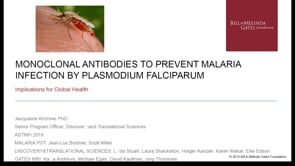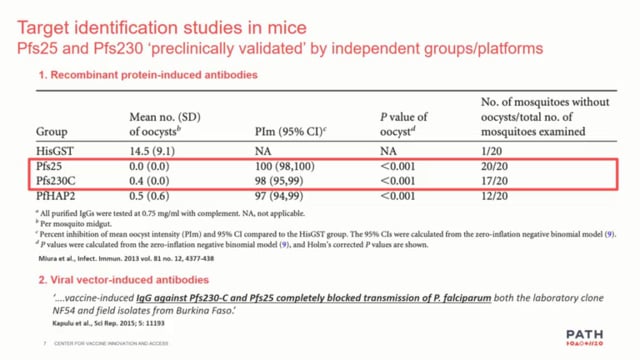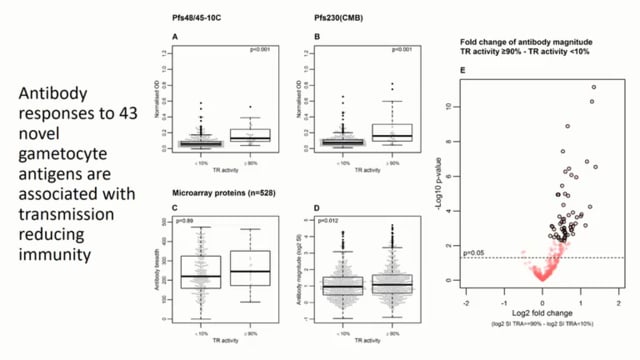Last Updated: 02/12/2024
Validation and characterization of antibody responses to Plasmodium falciparum antigens identified by protein array screening
Objectives
To evaluate two P. falciparum antigens as malaria vaccine candidates by determining whether naturally acquired IgG antibodies against these proteins can predict malaria protection in the larger parent cohort and exert anti- parasitic activity.
Indiana University-Purdue University Indianapolis (IUPUI), United States
Malaria afflicts more than 200 million people yearly, with the malaria parasite Plasmodium falciparum being responsible for the vast majority of the ~405,000 malaria deaths in 2018. A highly effective malaria vaccine is widely viewed as a much-needed tool for reducing malaria in endemic areas where healthcare delivery and vector control strategies are often disrupted by political conflict, natural disasters, and epidemics of rapidly transmissible viruses. Vaccines that target pre-erythrocytic antigens and whole sporozoite immunization approaches aim to induce sterile immunity that prevents the progression of liver-stage infection and thus the establishment of parasitemia and clinical malaria. However, the first licensed malaria vaccine, which targets the pre-erythrocytic circumsporozoite protein, is only partially effective at preventing severe malaria in African infants. Inclusion of asexual blood-stage antigens in a multi-stage malaria vaccine could improve the efficacy of partially effective first-generation vaccines by mitigating clinical disease caused by breakthrough parasitemia. Several promising blood-stage antigens have been prioritized in clinical trials, but the continued evaluation of other antigens in the malaria vaccine development pipeline is prudent given the challenges of achieving field efficacy against a genetically diverse parasite. In our preliminary studies, we found that antibody responses against two distinct P. falciparum antigens were significantly increased in a subset of malaria-protected children relative to malaria-susceptible children in a longitudinal cohort study conducted in Mali.
Our hypothesis is that conserved regions within either antigen are the targets of naturally acquired protective immunity against falciparum malaria. To test this hypothesis, we will determine the genetic diversity of local P. falciparum field isolates within the genes encoding these parasite antigens, which will allow us to identify a conserved region for recombinant protein expression. We will then determine if naturally acquired antibody responses against the conserved region within each antigen can predict protection from malaria in the parent cohort study and whether these antibodies have activity against P. falciparum parasites in vitro. Successful completion of this project will provide insight on the genetic diversity of these two antigens and provide evidence as to whether conserved regions within these antigens are the targets of naturally acquired protective immunity against malaria.
Feb 2021 — Jan 2024
$159,000


